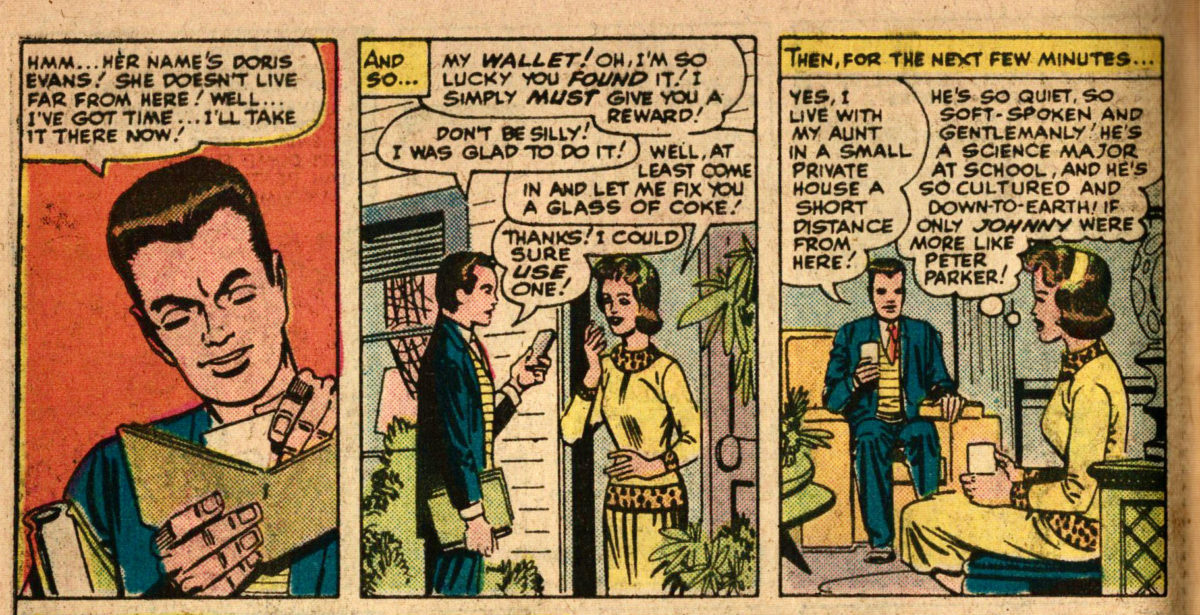Featuring: Spider-Man
Release: January 12, 1965
Cover: April 1965
12 cents
Written in the spell-binding style of Stan Lee
Illustrated in the magnificent manner of Steve Ditko
Lettered in the frenzied fashion of Artie Simek
20 pages
| Previous | #320 | Next |
|---|---|---|
| Fantastic Four #37 | Reading order | Sgt. Fury #16 |
| Amazing Spider-Man #22 | Amazing Spider-Man | Amazing Spider-Man #24 |
Maybe I should start writing down a list of my favorite covers (I do like lists). Early on, there weren’t many, so I was confident when we came across a great one, I could call it my favorite cover yet. Now I’m beginning to wonder. This is a great cover. Is it the best cover yet? Maybe.
I appreciate the Green Goblin on this cover. And only on this cover. Outside of this cover, he’s a lame villain. For evidence, let’s look inside the comic.

Green Goblin is trying to set himself up as a local crimelord. By the time I was reading comics, local crimelords were guys like the Kingpin, who looked the part better to my mind. I suspect Marlon Brando’s Godfather left an indelible impression of what a crimelord should look like to me and to many, but this predates that by several years. Still… they can do better. Lucky Lobo has a much better “crimelord” look.

The previous kingpin had been Frederick Foswell, the Big Man. He looked the part better. Coincidentally, Foswell returns, having been released from prison. He was the leader of every mob in town, behind numerous crimes, yet he was released after less than a year and given his old job back.
Continue reading “Amazing Spider-Man #23”





























